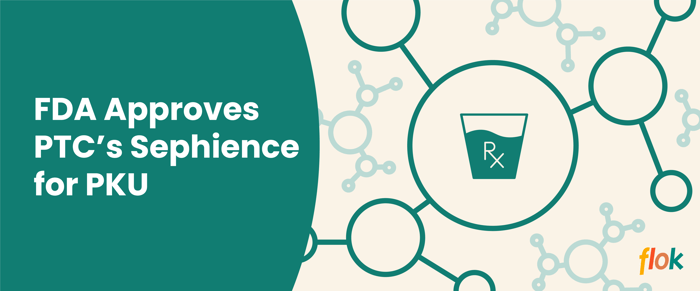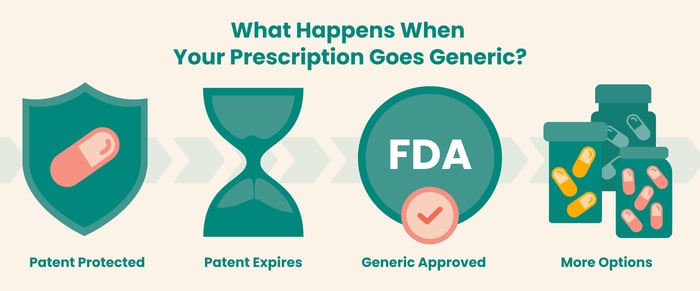Today, the U.S. Food and Drug Administration approved Sephience™ (sepiapterin), a new treatment from PTC Therapeutics, for children and adults living with PKU.
This marks a major milestone for the PKU community—only the third treatment ever approved for this condition in the U.S. The decision follows strong results from Phase 3 clinical trials, which showed significant decreases in blood phenylalanine (phe) levels across all age groups after just six weeks of use.
Read the full press release issued by PTC Therapeutics.
Celebrating Progress
In a landscape where many rare metabolic conditions still lack a single FDA-approved treatment, the PKU community is fortunate to now have three.
- Kuvan (sapropterin dihydrochloride), manufactured by BioMarin, was approved in 2007.
- Palynziq (pegvaliase), also by BioMarin, was approved in 2018 for adults, with adolescent trials ongoing.
- And now, Sephience joins the list—offering renewed hope for patients and families navigating PKU.
Many individuals with PKU thrive on their current treatment plan— whether that’s through dietary management, Kuvan or Palynziq. But for those who have not responded to existing options, Sephience provides a promising path forward.
How Sephience is Changing Lives Already
flok spoke with the mother of a teenager who participated in the Sephience clinical trial:
“This drug has been nothing short of a miracle for our whole family. As a mom of someone with PKU, I have wished for this every time my child had to skip out on something everyone else was eating, and every time they were hungry. The burden of care required by the low-protein diet has weighed heavy on me for so long. I could not be more grateful for this new freedom.” – Parent of a teen with PKU
“Sephience has changed everything for me. Food is a part of life all day long, and now I don’t have to worry about it.” – Teen with PKU who took part in clinical trial
PTC’s Ongoing Support for the flok Community
PTC Therapeutics has shown long-term commitment to our metabolic community—not just through developing treatments like Sephience, but by supporting families directly. They have sponsored flok Family Camps and additional educational activities over the past several years, helping create spaces for connection and care. This kind of partnership between families, researchers, and biotech companies is what drives real progress for our conditions.
Sephience Webinar Recording: flok in Conversation with PTC
flok co-hosted a virtual event with PTC Therapeutics in the fall to help answer your questions and share more about the new PKU treatment.
flok compiled a list of FAQs to help answer questions from our community members about Sephience.
FAQs
What is Sephience™ (sepiapterin)?
Sephience is an oral medication to help manage PKU.
Is Sephience the same as Sapropterin?
No, Sephience is a newly FDA-approved drug. Sapropterin is the generic name of Kuvan. The names are similar because they are both pterins, which play a role in chemical processes in the body—in this case, supporting the metabolic conversion of phenylalanine to tyrosine.
Who can take Sephience?
The FDA has approved Sephience for children and adults, including infants as young as one month old.
How do you take it?
Sephience is a powder that is mixed with a small amount of liquid. It does not dissolve fully and results in a suspension designed to be consumed immediately after mixing. Because it belongs to the class of pterins that have a distinct yellow-orange color, the powder & suspension have an orange hue.
How does it work?
In PKU, PAH enzyme activity is reduced or absent. Sephience works by increasing and stabilizing BH4, a cofactor that supports PAH in converting phenylalanine (phe) to tyrosine, helping to lower phe levels in the blood.
Who does it work for?
In a Phase 3 trial:
- 73% of participants with PKU saw at least a 15% reduction in blood-phe levels.
- 43% of people who didn’t respond to sapropterin (Kuvan) responded to Sephience. This shows that non-responders to Kuvan may respond to Sephience.
What if I’m taking Kuvan or Palynziq and want to try Sephience?
Any decisions about starting Sephience should be made in consultation with your metabolic care team.
How can it help people with PKU?
In responders, Sephience reduces blood-phe levels. This may allow individuals with PKU to eat more natural protein in their diet. As chronically elevated phe levels are associated with neurological, cognitive, and behavioral impairment, use of Sephience may also prevent impairment in these areas and will require further long-term study.
How can someone access Sephience?
Sephience will require a prescription through your metabolic clinic and is expected to become available in mid-August.
How much does it cost?
Cost will depend on individual insurance benefits and coverage.
How do you pronounce it?
Sephience is pronounced /sə-ˈfī-əns/, which rhymes with “defiance.”



